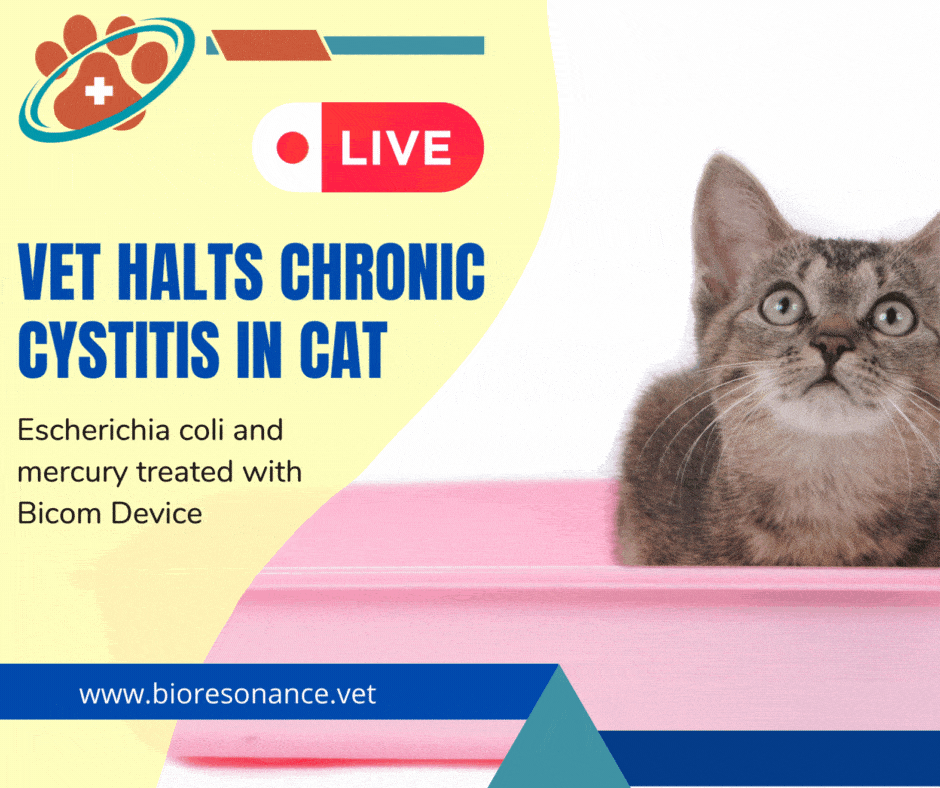Client Name: Dr. med. vet. Schollaert, Belgium
Miou purrs once more
I have been a BICOM® therapist since 1983 and about two-thirds of the patients in my veterinary practice are horses and one-third are small animals, mainly cats and dogs.
I am going to report on a cat with chronic cystitis as a typical example of around 30 or 40 similar cases.
Miou, a sterilized female house cat, was brought to my practice by her owner. The animal had already been suffering considerable pain on urinating for over six weeks. She tried to pass water six or seven times a day and had to squeeze hard in doing so, yet only produced a few drops.
The owner had already gone to two other practices. These had carried out several urine tests and detected Escherichia coli. Both practices gave Miou antibiotics. These would get rid of the symptoms but, as soon as she stopped taking them, the symptoms soon returned.
Using the BICOM®, mercury tested positive as the main contributory factor, probably from thiomersal, an active ingredient in vaccines, and I also detected parasitic infection with Schistosoma.
After basic BICOM® therapy to restore the energy balance, I stabilized the kidneys with a special program. This was followed by the “toxin elimination“ program. Then the mercury and parasitic infestation were eradicated with the appropriate programs. The cat was already visibly relaxed after the first treatment session.
The second session took place after six days. During this treatment, the cat lay totally relaxed on the modulation mat while the therapy oscillations were applied to her.
Three days later the owner called to report that the cat was much better and was no longer displaying any symptoms. We made a third appointment for treatment, after which Miou was lively and restored to full health. It is now three years since this treatment and the cat has not experienced a relapse.
To find out how to treat cystitis in cats please contact us HERE

